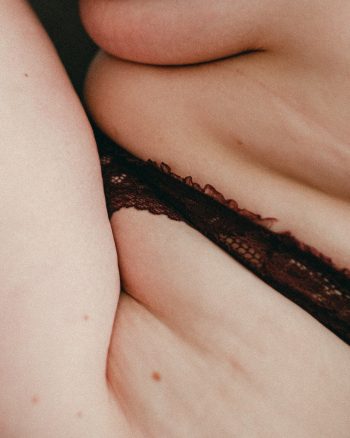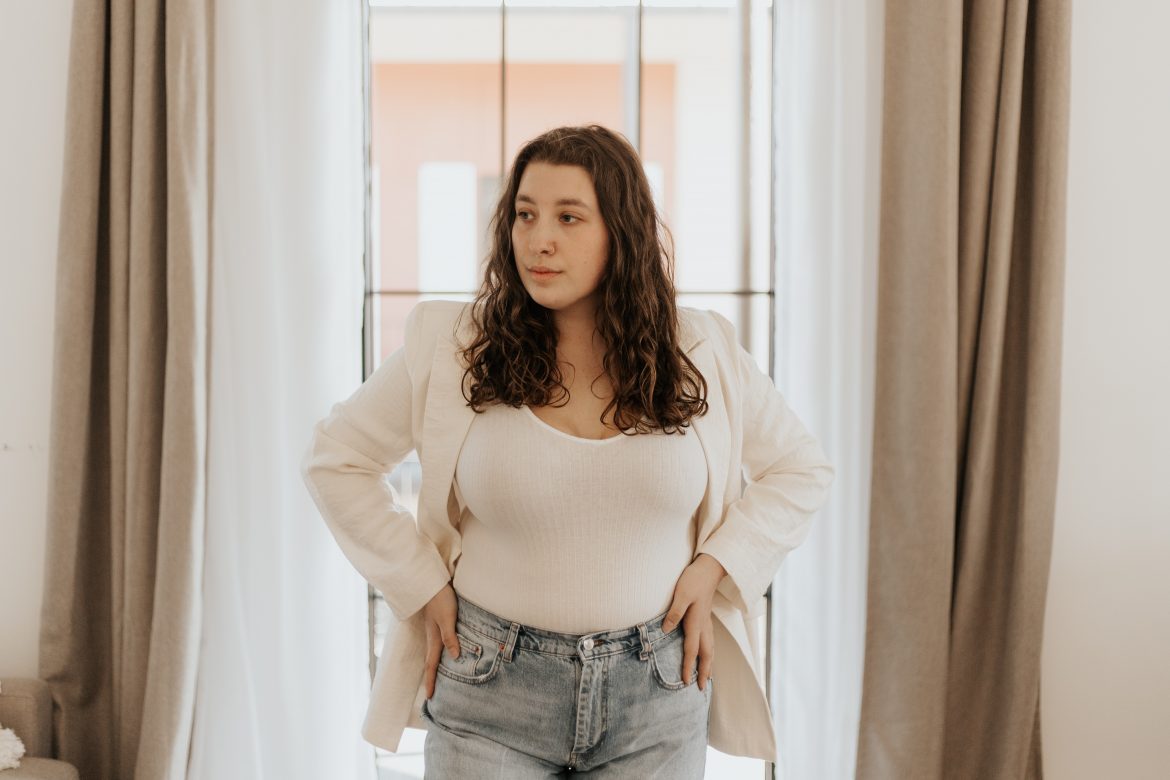I first heard about body dysmorphic disorder (BDD) when I was twenty-one. For years before that, it ruled my thinking without me really knowing. Growing up, I was convinced that I was as ugly as a monster despite being told I was beautiful. I went on to isolate myself from experiences and develop unhealthy coping mechanisms because of it.
When I finally discovered that BDD is a real mental health condition that thousands of women struggle with, I felt less alone and worked on the courage to look at it from a different perspective. Today, in awareness of Mental Health Day, I’ll be opening up about my journey with BDD, chatting about how it’s more common than one would think (you’re not alone) and how to manage life with BDD.

Unsplash
What is BDD?
In short, BDD develops when one has an obsessive focus on a perceived flaw/flaws of their appearance. This flaw can be minor, or even completely imagined, but in the mind of the individual with BDD, it’s real and insurmountable.
BDD is more than a fixation. It’s the feeling of repulsion whenever you catch a reflection of your perceived flaws. It’s isolating yourself from opportunities like making friends or falling in love. It’s convincing yourself that whichever flaw/flaws you are fixated on are undoubtedly going to get in the way of your happiness.
For me, this focus has always been my weight. In school, I was chubbier than the other girls and required the biggest dress available on the rack. I was relentlessly teased about my size. This made its mark on me. As I grew up and my weight fluctuated, I would always grab the biggest size available.
In fact, it’s still something I have to work on not doing today, despite being several sizes below the biggest. Even though I may look ‘normal’ to others, I still see the overweight girl who only fits the biggest size. Sometimes, when I look in the mirror, I can’t see beyond my weight.
If you can relate to this, it’s more than possible you’ve had your fair share of battles with BDD.

Unsplash
Where does it come from?
Studies on this aren’t fully conclusive yet. According to the National Health Service, BDD may be associated with three things:
- You’re more likely to develop BDD if you’ve got a relative with obsessive compulsive disorder (OCD) or depression.
- A chemical imbalance in the brain.
- Traumatic experiences like teasing, bullying or abuse.
When you’re sponging up information about your new environment as a new little human, you soak up what’s around you. When a mother outwardly enforces negative beliefs about her body, that’s what her child will take in. Influence like this will always trickle down, even when we try our best not to have it be this way. The best we can do is try to nurture a healthy relationship with our bodies, when we can. The digital age doesn’t make it easy, though.
BDD in the age of social media
Young women and girls who are battling with BDD don’t have it easy in the social media era. With Tik Tok trends like #bodychecking making the rounds, it’s difficult not to make direct comparisons. Suddenly, if we don’t have the hourglass figure, big bosom and perfect butt like that one girl on Tik Tok does, it becomes tough reinforcing positive feelings about your own body.
In an article published on The New Yorker, the writer details how the use of beauty filters on social media has reached new extremes. Women are now using images of themselves altered by beauty filters (like the ones that give you bigger lips, chiseled jawlines and wide open eyes) as a reference for real-life cosmetic surgery.
This scary reality shows just how much value women place on ‘beauty’ as presented on social media. What happened to placing value on unique beauty?

Unsplash
Living with BDD
One thing that has helped me create healthy distance between myself and the negative beliefs I have reinforced about body is learning more about BDD. Following other women who struggle with it, who speak about it openly. Being equipped with knowledge about BDD and how it commonly acts up, gives me just a little more space to stop and think about it when I’m in the thick of it.
It isn’t always easy to remind yourself of what’s going on, though. That’s why it’s important to embrace the supportive people in your life – if they’re around, it means they love spending time with you. Don’t tell yourself otherwise or hold yourself away from others because of your perceived ‘flaws’ – others can help you reinforce positive beliefs, the more you open yourself up to it.
I know it’s easier said than done. I’m just here to say, if you’re feeling repulsed or disgusted by yourself (even when the world tells you otherwise) you’re not alone. There are thousands of us out here who feel exactly the same way as you do, and we see you.
Feature Image: Unsplash

